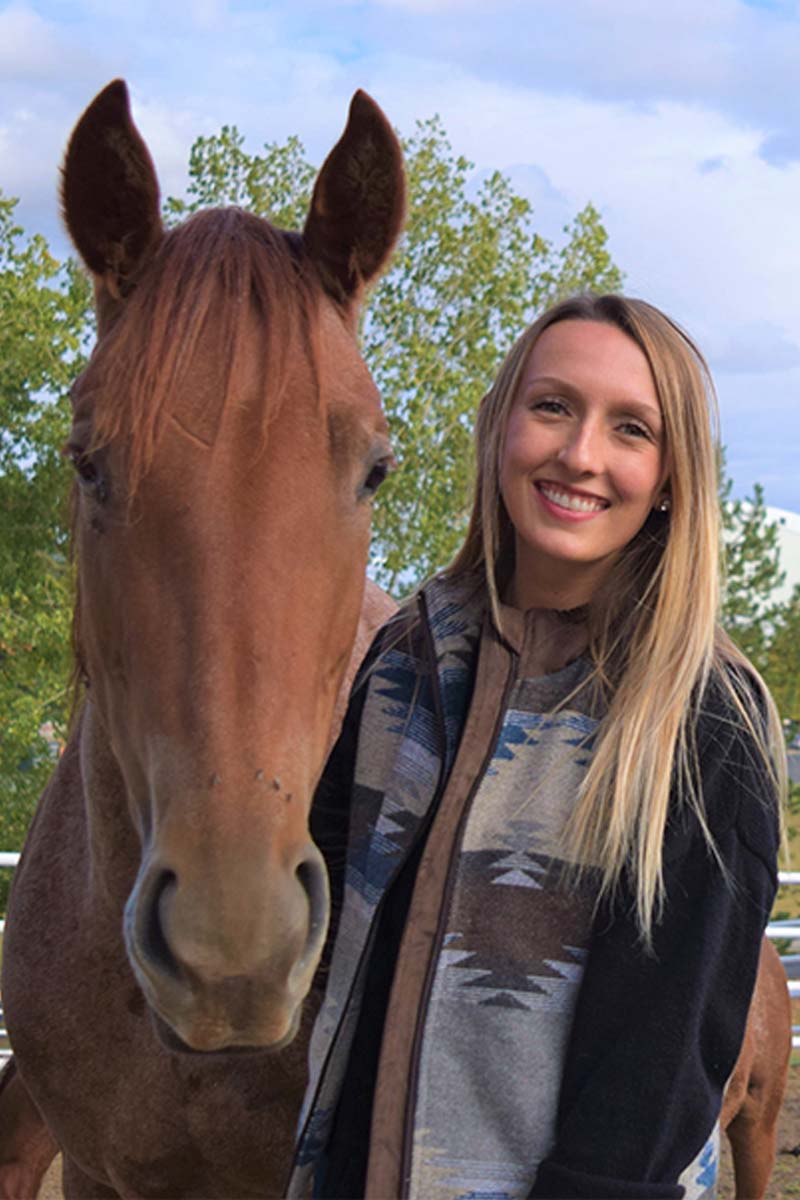Expedition for Education
Alex Kelly has learned that a summer studying abroad is about much more than a new adventure. Her experience enabled her to witness and participate in foreign agricultural practices and gain a broader perspective of the world.
Kelly spent summer 2019 studying in New Zealand — a country booming in agriculture. A senior from Filer, Kelly is studying animal and veterinary science in the University of Idaho’s College of Agricultural and Life Sciences.
Animal Agriculture Abroad
Kelly had the opportunity to witness animal agriculture through an international lens as part of Massy University’s Expedition and Internship program in the School of Agriculture and Environment.
“It was a cool experience with people who didn’t all have the same outlook that I did and who knew a lot about environmental issues,” she said.
Kelly was the only animal science student out of 21 total interns from different international universities but recommends the experience to any students considering study abroad.
“Being able to actively communicate my knowledge of the animal agriculture industry with others with differing viewpoints, and learning how to effectively communicate, was a valuable skill to gain,” she said.
Hands-on Experiences
Kelly was able to travel around New Zealand to study the relationship between the environment and agriculture at a variety of locations including dairies, wineries and crop farms. She was able to compare how the cultural differences vary to the United States and share some of her experience with the people there.
She was also able to spend time working on a dairy goat farm.
“I got to totally immerse myself in the work culture,” she said. “I learned so much about herd health management when it comes to dairy goats. I learned a lot about alternative practices when it comes to rotational grazing too.”
Farmers in New Zealand utilize different livestock species for different forages. Sheep are utilized for smaller grasses and cattle for larger grasses on “paddocks” of land, Kelly said.
“The grazing practices were very different there and I learned a lot.”
Kelly received funding from the CALS Excellence Fund to cover her travel expenses.
“Receiving funding from the CALS Excellence Fund was game changing,” Kelly said.
The Next Chapter
Kelly will graduate in May 2020 and plans to continue her education in applied breeding in livestock, animal breeding and embryology. She wants to research options to solidify technology of embryo transfer and hopes to someday have a career as an embryologist.
Her experiences in New Zealand changed her outlook on animal agriculture and on her future career.
“It changed me as a person, I’m a lot more open minded now, I can have a lot more conversations than just animal agriculture now and that will help me as I further my education and begin my career,” she said.
Article by Hannah Doumit, College of Agricultural and Life Sciences
Photos provided by Alex Kelly
Published in November 2019









